Elderly
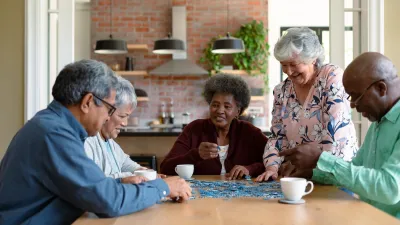
Building Age-Friendly Homes
Designing for the unique needs of elderly people can help them maintain social connections and mental acuity.

Study: Walkability Can Help Reduce Dementia Risk
Walkable neighborhoods offer natural opportunities to stay active and engaged with friends and neighbors, increasing residents’ chances of remaining mentally and physically healthy longer.

Survey: Americans Finding it Harder to ‘Age in Place’
While many people over 65 would prefer to stay in their homes and communities, high housing costs and a lack of accessible infrastructure make it difficult.

Homelessness Among Maryland Seniors Rose 77 Percent Since 2018
The high cost of housing is pushing many older adults into homelessness, while shelters are not equipped to address their specific needs.

LGBTQ+ Elders Face Compounded Challenges in Accessing Fair and Equitable Housing
Lessons for building affirming, inclusive, and trauma-informed housing developments for older LGBTQ+ adults.

Top Retirement Destinations in California: Where Affordability, Health, and Recreation Meet
These spots offer a balance of affordability, access to healthcare, and outdoor recreation opportunities that make them ideal for those seeking comfort and quality of life in their golden years.
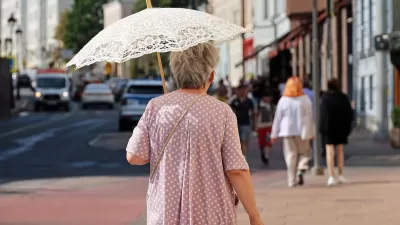
Protecting Vulnerable Older Adults From Extreme Heat
People over 65 are at particular risk during heat waves and other climate disasters.
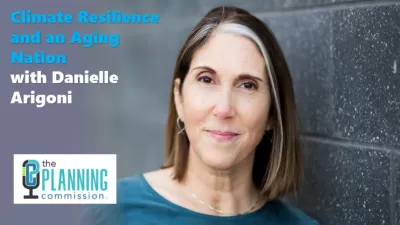
Climate Resilience for an Aging Nation with Danielle Arigoni: The Planning Commission Podcast
Author and livability expert Danielle Arigoni talks about her new book with the Planning Commission Podcast.

Proposed Senior Community Wants to Use Tech to Keep Aging Residents Healthy
A proposal from a California investor and the University of California, Davis envisions a seniors-oriented community complete with healthcare facilities and other ways to support older residents.

Report Highlights Housing Insecurity Among Seniors
Older Americans face rising mortgage debt, high costs for medical care and assistance, and a dearth of accessible housing.
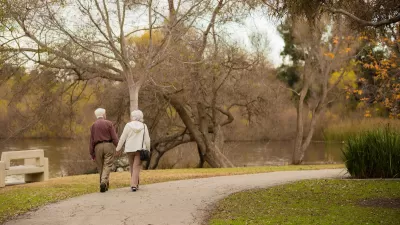
Report: Housing Costs a Growing Concern for Older Adults
A growing number of older Americans are finding it difficult to downsize to smaller, more accessible, and more affordable homes while staying in their communities.

How Zoning Reform can Help Seniors ‘Age in Place’
Without more middle housing options, the United States will be short on ‘aging-ready’ homes.

Seniors Over 50 Make up Almost Half of California’s Unhoused Population
A new study finds that low-income seniors are increasingly unable to find affordable housing.
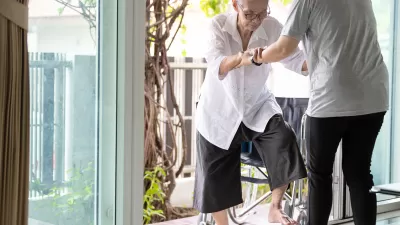
The Challenges of Aging in Place
Seniors in one Bay Area community want to stay in their communities, but many find the cost of living and maintaining older homes prohibitive.
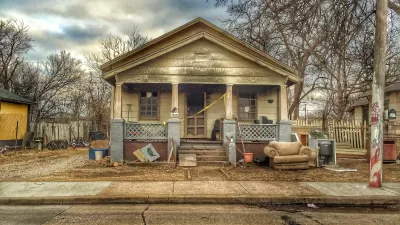
The Ugly Truth Behind “We Buy Ugly Houses”
HomeVestors of America, the self-proclaimed “largest homebuyer in the U.S.,” trains its nearly 1,150 franchisees to zero in on homeowners’ desperation.

How Neighborhoods Impact Older Adults’ Resiliency to Climate Change
New research seeks to learn how homes, neighborhoods, and communities affect how older residents are affected by climate change.
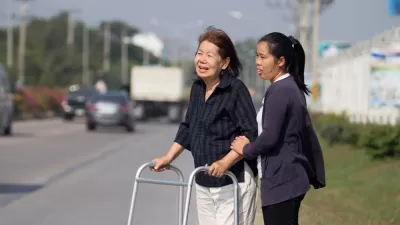
Opinion: Housing Reforms Critical for Older Americans
Older adults are some of the most vulnerable to threats of eviction and displacement driven by escalating housing costs.
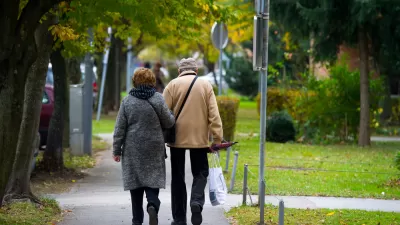
Changing Perceptions of Aging in Planning
In planning, stereotypes of older adults still dominate, and it’s time for that message to change.

A New Vision for Senior Housing
The interest in less traditional housing arrangements for older people, such as shared housing and cohousing, is increasing.

Smart Cities Should Also Be Inclusive and Accessible Cities
The Inclusive Innovation Playbook provides guidance about how to create smart cities without leaving anyone behind.
Pagination
Urban Design for Planners 1: Software Tools
This six-course series explores essential urban design concepts using open source software and equips planners with the tools they need to participate fully in the urban design process.
Planning for Universal Design
Learn the tools for implementing Universal Design in planning regulations.
planning NEXT
Appalachian Highlands Housing Partners
Mpact (founded as Rail~Volution)
City of Camden Redevelopment Agency
City of Astoria
City of Portland
City of Laramie


































